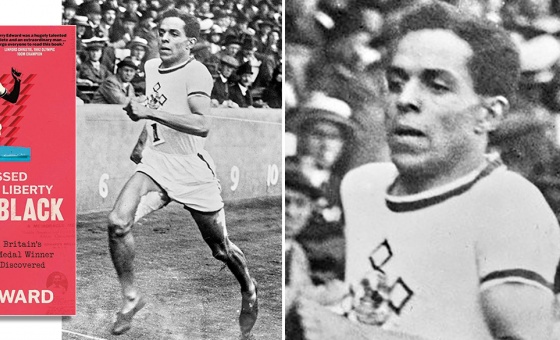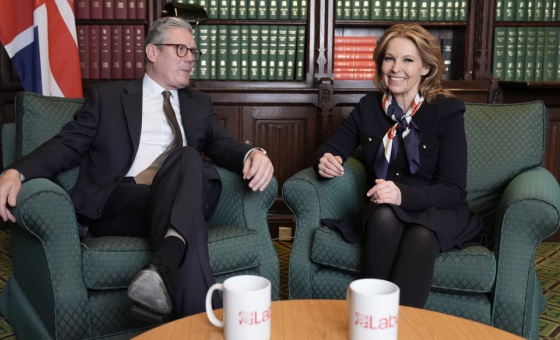This is the last article you can read this month
You can read more article this month
You can read more articles this month
Sorry your limit is up for this month
Reset on:
Please help support the Morning Star by subscribing here
“THERE’S no such thing as ‘only a housewife’.”
Shelia Capstick was speaking to at a small gathering of Yorkshire miners’ wives to launch a local Women Against Pit Closures (WAPC) group during the miners’ strike against pit closures of 1984-5.
She’d asked the women in the front room of her home to introduce themselves and say what they did.
One nervous woman who said she was “only a housewife” prompting Sheila’s response about there being no such person.
The woman went on to not only be an active campaigner and fundraiser for WAPC, she also addressed packed public meetings on platforms alongside members of Parliament and trade union officials.
After the strike she attended university and won a degree.
She was not the only person to be inspired by Capstick, who died on March 11 aged 75.
Capstick first gained public attention in 1978 as a campaigner for equality and justice for women in working men’s clubs. And it all began with a game of snooker.
Capstick was enjoying her regular game in Wakefield City Working Men’s Club (WMC) in Yorkshire.
A club committee man was waiting impatiently for a game — so impatient that a few days later the club’s committee banned women from playing snooker.
Capstick was furious. She wrote to women’s magazine Cosmopolitan asking if “in these days of so-called equality” women should have to stand for it. Two thousand people signed a petition Capstick started against the club’s decision.
Feminist icon Germaine Greer responded with a postcard pledging support.
Fifty people turned up on a wet Saturday to deliver the petition to the club. The committee refused to accept it.
Police were called — a committee man accused the peaceful petitioners of “riot.”
The committee reluctantly accepted the petition, and reputedly tore the it up as the lobbyists dispersed.
Drying out in a nearby pub, Capstick and a group of soaked supporters discussed how the inequality and discrimination at Wakefield City WMC was widespread throughout the club movement.
It was ingrained in the monolithic Club and Institute Union (CIU) which represented 4,000 working men’s clubs with four million members.
Out of the bedraggled gathering was born a national organisation, ERICCA — the Equal Rights in Clubs Campaign for Action. Its slogan was “A woman’s right to cues.” Capstick was its leader.
ERICCA challenged the system which barred women from full membership of clubs. They could not vote or stand in elections to club committees. They were denied membership of the CIU, which gave male members of any club access to 4,000 other clubs. Many clubs had “men-only” bars.
Widespread publicity about ERICCA brought a huge response.
Trade union organisations, including locally Wakefield Trade Union Council, voiced support.
Women took up the battle at their own clubs, where their husbands could be full members and vote, but they could not.
In 1981 ERICCA targeted the CIU’s annual conference in Blackpool’s Winter Gardens. Only the conference’s 2,500 delegates could change the rules.
Capstick dressed as suffragette Emmeline Pankhurst to lead a march to the conference, where the all-male delegates strode past 200 ERICCA protesters, shouting: “Get back to the kitchen sink!”
Capstick and a group of women got in through a rear door, occupied a balcony and lambasted delegates below through a megaphone. They were ejected, having made their point.
The Equal Opportunities Commission invited Capstick to Manchester to discuss the issue — but still the CIU wouldn’t budge.
Private clubs were exempt from the 1975 Sex Discrimination Act, including WMCs and “gentlemen’s clubs” in London and elsewhere.
The constant media attention became too much for Capstick — she disliked TV interviews and talking to reporters — and she withdrew from the ERICCA campaign.
But in 1984 she put her energies and her abilities into the 1984-5 miners’ strike against pit closures. Her husband Ken was a miner in the Selby coalfield, and was a pit branch official of the National Union of Mineworkers (NUM).
Capstick formed a branch of Women Against Pit Closures.
Ken, who later became Yorkshire Area NUM vice-president, told how she had responded to the “only a housewife comment” and what had happened to the nervous wife of a miner later.
“Sheila’s influence changed that woman’s life,” he said. “Sheila inspired a lot of women like that.”
In 1998 Capstick suffered a brain haemorrhage. With Ken’s help she determinedly overcame many of its effects, but did not resume her previous activism.
In 2007, 29 years after ERICCA was launched, delegates at the CIU’s annual conference finally changed the rules to admit women to full membership.
The reason may have been partly financial — changing social habits saw WMC membership plummet, and 2,200 clubs had closed.
Whatever the reason, Capstick said that at last her fight for equality in clubs had been justified.
Brenda Haywood, who campaigned alongside Capstick in ERICCA, said: “Sheila Capstick was a fighter. She knew right from wrong and was having none of it when that club committee banned her from the snooker table.
“She was inspirational, loyal and always generous with her time and energy. She never gave up and, 30 years after that ban, she was successful.
“Sheila made a difference. She will be much missed, but she will never be forgotten.”
Capstick was born in June 1942 in the mining village of South Kirkby in Yorkshire. Her father and grandfather were miners.
She leaves her husband, Ken, daughter Julie, sons David and Graham, and five grandchildren.
Her funeral takes place at 9.20am on Wednesday March 28 at Kettlethorpe crematorium, near Wakefield.









